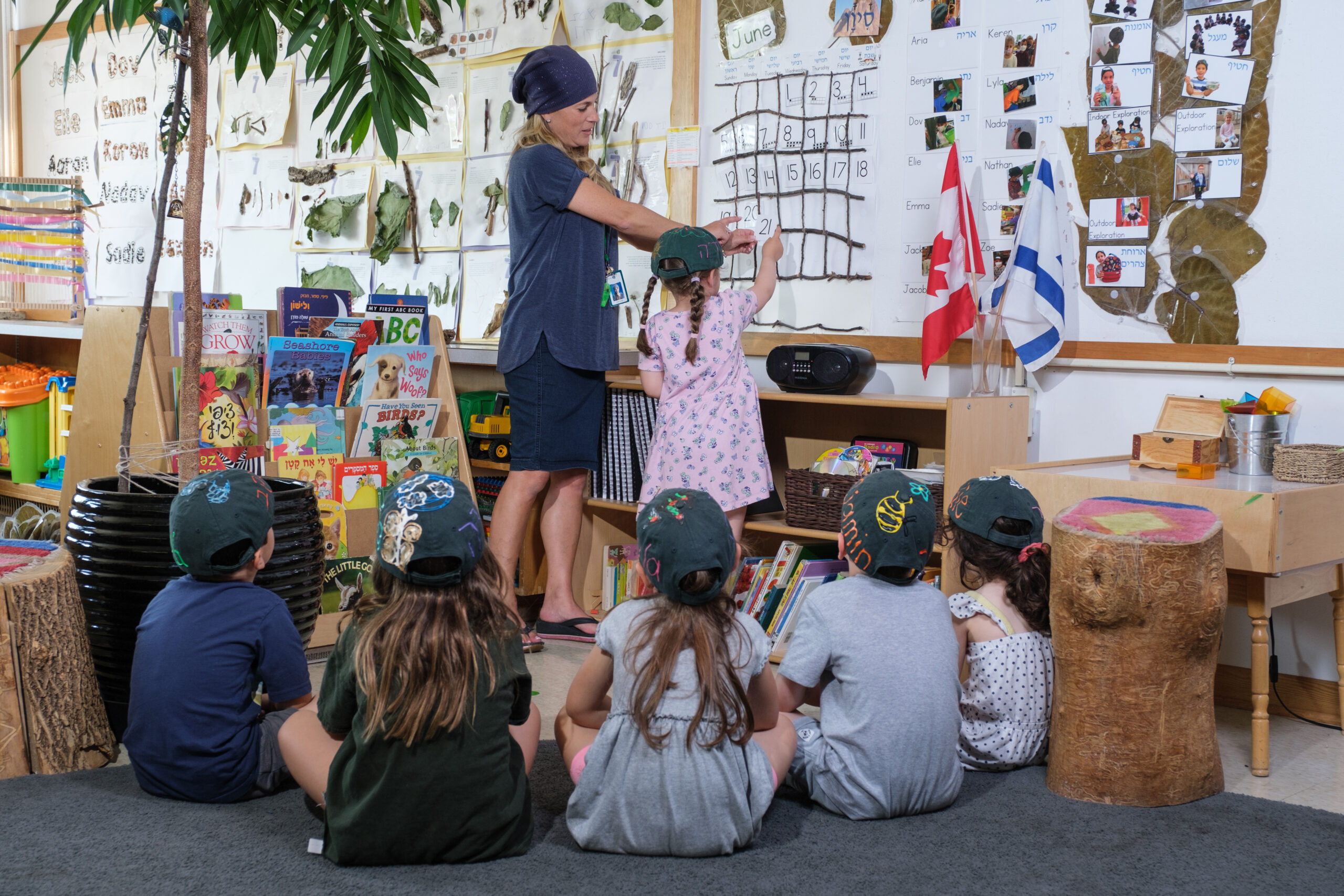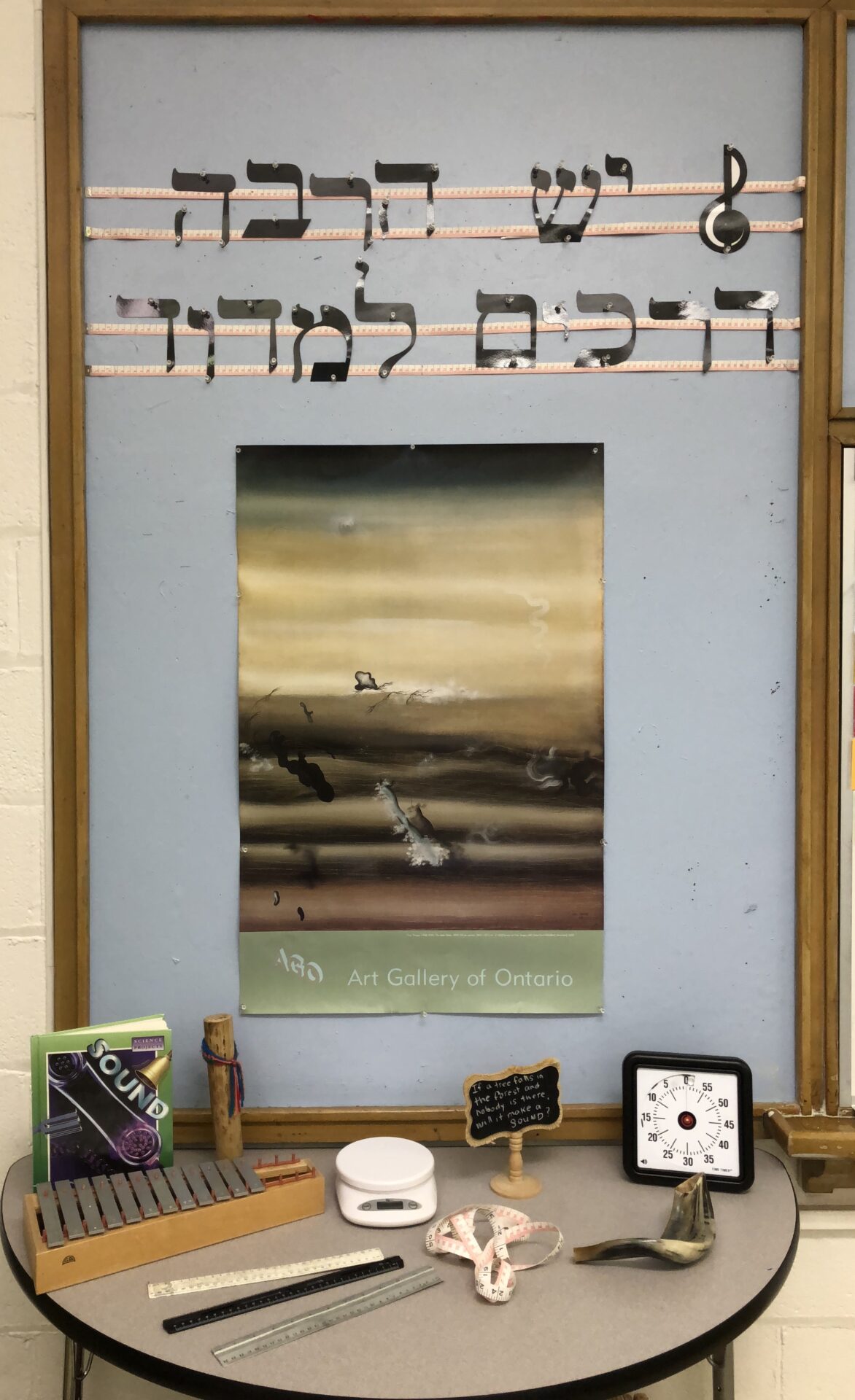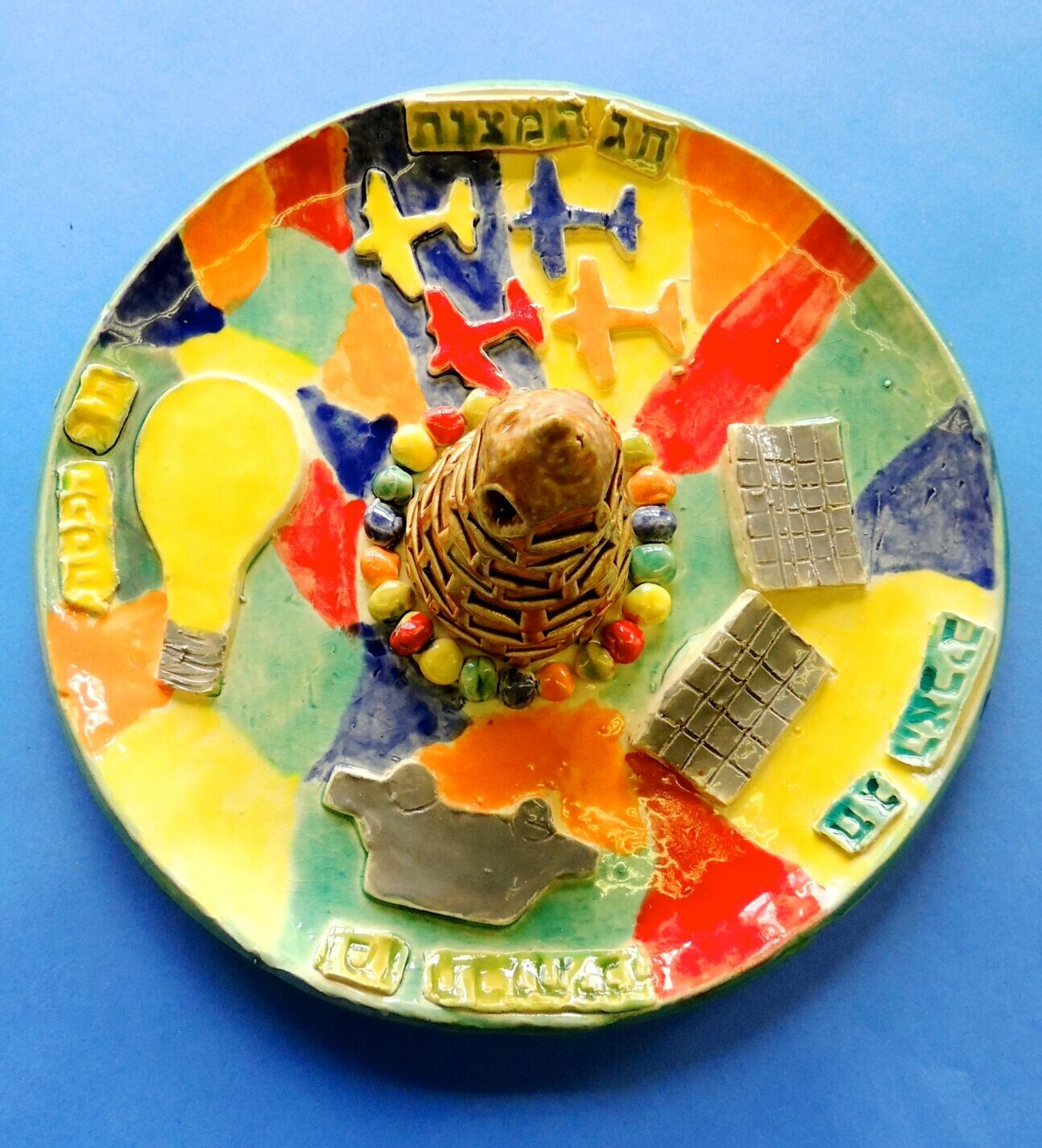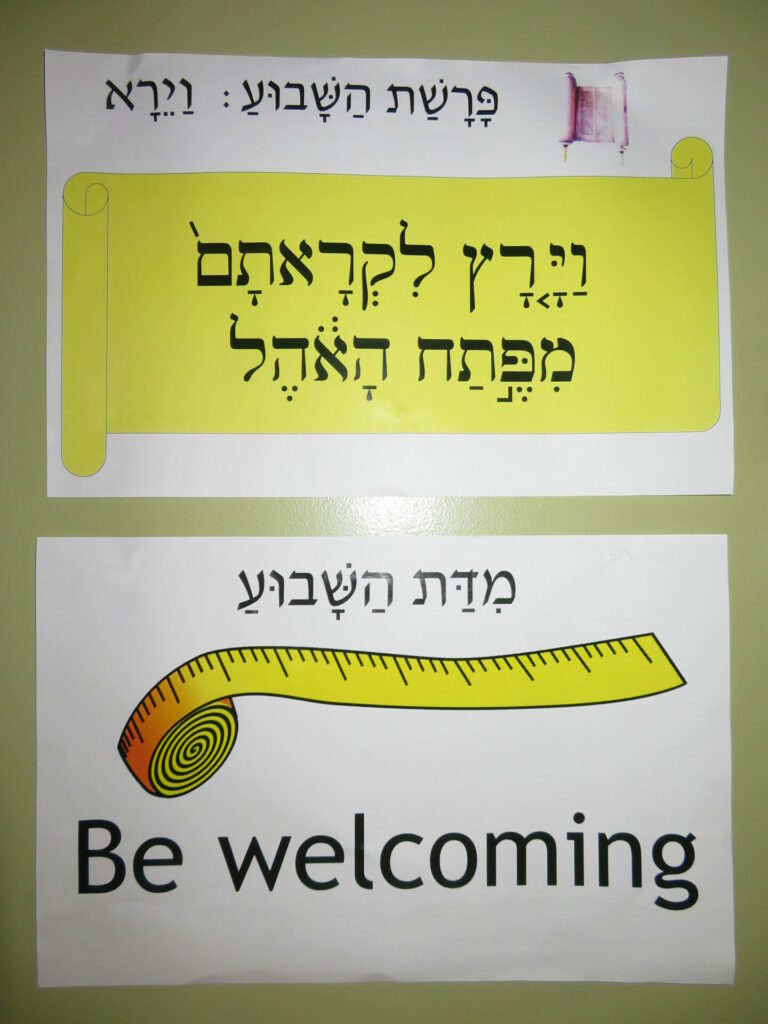The Toronto Heschel School offers a unique, award-winning curriculum which encompasses best practices for teaching and learning that form the basis of our whole child approach to education. For those looking to learn more about our approach, here are descriptions of some of our core methodologies.

1. Teaching and Learning in the Disciplines
Each discipline (subject area) is taught using methods that encourage the “ways of thinking,” which are natural and inherent to that. For example, learning in science focuses on the Scientific Method and the use of inquiry and experimentation; Mathematics focuses on logical reasoning; Hebrew language instruction focuses on oral immersion, as well as the unique root structure of Hebrew; Tanakh instruction nurtures students’ abilities to interpret text in multiple ways; Gemara focuses on the development of logical reasoning.
2. Interdisciplinary / Integrated Teaching and Learning
Along with strong skills in each discipline, we aim to develop in our students a holistic, interdisciplinary view of the world. By integrating Jewish and general (secular) studies, we help students appreciate how Judaism endows us with unique and powerful approaches for learning, inquiry and reasoning that can be applied broadly. We provide students with a Jewish lens through which to understand a broad range of ethical and social issues. Through these methods students develop a sense of Jewish identity grounded not only in Jewish content but in Jewish ways of learning and thinking about the world.

3. Big Ideas Curriculum (Generative Topics)
Topics of study, whether disciplinary or interdisciplinary, are organized around “Big Ideas” or Generative Topics. A Generative Topic is a conceptual theme or idea that is broad in scope; A good Generative Topic is one that generates and maintains student interest, raises important questions, and often is relevant to more than one discipline. Ideally, Generative Topics will be based on a rich Judaic concept. Examples of quintessential Generative Topics in The Toronto Heschel School curriculum are מעבדות לחירות (From Slavery to Freedom, grade 5), חכם לב-נדיב לב (The wise heart and the generous heart, grade 1), and למינה כל חיה (Each animal according to its kind, grade 2).
4. Nurturing Habits of Heart and Mind
Along with skills, methods, and content in each discipline, we aim to nurture in our students positive dispositions for thinking, working, and inter-personal and intra-personal development. The notion of such dispositions is based on the work of Kallick and Costa, whose list of Sixteen Habits of Mind include dispositions of curiosity, risk-taking, perseverance, posing questions, and finding humour. We expand beyond their initial list to include Habits of Heart and Mind that emerge from the Jewish tradition.
5. Teaching and Learning for Understanding
We teach for deep understanding in all disciplines of the curriculum. Teaching for understanding requires that students demonstrate not merely procedural proficiency (e.g., being able to answer that 5 x 7 = 35) but conceptual understanding (e.g., being able to demonstrate ‘how’ or ‘why’ 5 x 7 =35). Learning for understanding can be demonstrated through application of learned knowledge and skills to new contexts, reconfiguration of knowledge in different modalities (e.g., transferring knowledge from written form to artistic form), the ability to explain or represent knowledge in different ways and diverse strategies, and project-based learning.

6. Teaching Through the Arts
We employ the diverse arts as methods for teaching in all areas of the curriculum. The arts are effective tools for learning of basic facts, thinking skills, and complex ideas. Teaching through the arts has been shown to invigorate student engagement and connection to material. Learning Jewish texts and concepts through the arts creates a deep, embodied connection to the material. Moreover, learning through the arts has been shown to enhance abilities such as lateral thinking, organizational skills, and long-term planning.
7. Experiential, Inquiry-Based Learning
Classroom lessons are structured around inquiry-based learning activities, in which students are actively engaged in generating meaning and knowledge, rather than being passive recipients of the teacher’s instruction. Inquiry and experiential learning are enhanced by the use of the arts (see above), small group and Chaveruta based learning, and project-based learning.
8. Multi-Sensory Learning
This is an instructional approach that uses many of the senses when teaching or learning a subject. It provides students with the opportunity of taking in and expressing learning using various modalities, i.e. auditory, visual, and kinesthetic, etc. We draw on Howard Gardner’s theory of “Multiple Intelligences,” suggesting that individuals perceive the world in at least nine different and equally important ways, and that educational programs should foster the development of all these forms of thinking.
9. Attention to the Diverse Learning Styles and Needs of Each Child
Learning and assessment activities are structured with attention to the diverse learning styles and needs of each child. This requires differentiated instruction, the use of multi-sensory instructional tools, and individual (along with group) assessment.

10. Nurturing Ethical Conscience Through a Jewish Framework
We teach values of democracy, responsible, and ethical citizenship through Jewish sources, ideas, and practices. The Chumash Theme curriculum, Grade 8 Talmud/Human Rights unit, and school-wide Middah program are examples of explicit practices that teach ethics through a Jewish framework. Throughout the curriculum, attention is given to nurturing ecological awareness and environmental responsibility from a Jewish perspective. The ‘Heschel Classroom,’ the daily toranut program, and integrated outdoor learning activities are all examples of learning activities that support this goal.
11. Jewishly Inspired Environmental Education
Students learn to respect and protect the environment through our innovative environmental studies programme. Students participate in composting, recycling and renewal activities, which include tending to our teaching garden and participating in outdoor classrooms and hands-on nature and science lessons. The Toronto Heschel School has been recognized for its commitment to the environment through its designation as a certified “Ontario Eco-School – Platinum Status.”
These are the teaching practices which support the Heschel educational vision and form the basis of the teaching methods we use across the curriculum.










